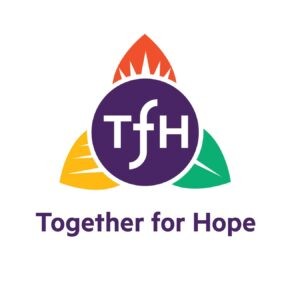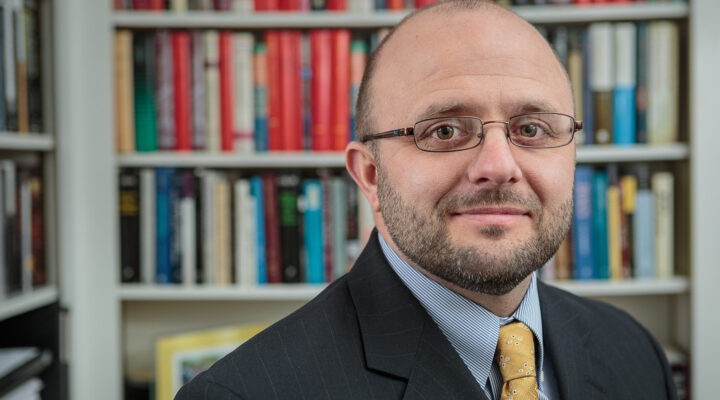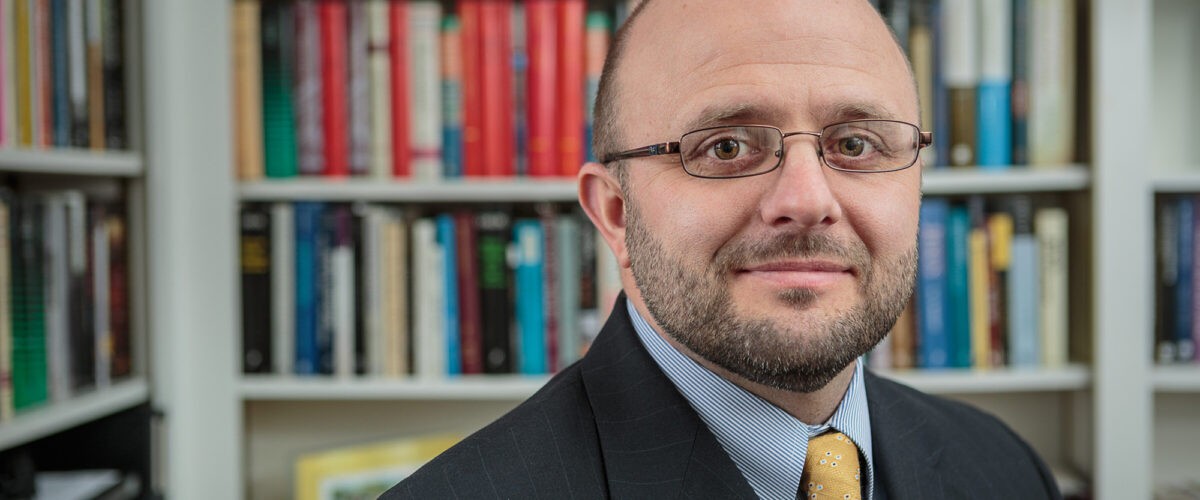Jason Coker is setting the bar pretty high these days at Together for Hope, the rural poverty initiative launched by the Cooperative Baptist Fellowship to serve impoverished Americans in 301 of the poorest counties in the nation.
In fact, the goal is so big, the organization’s national director said, that it could make the organization obsolete.
“It’s basically designing a future without poverty. That’s exactly what I am trying to do,” said Coker, who also serves as coordinator for the Cooperative Baptist Fellowship of Mississippi.
 The latest vehicle for that bold vision is the Field Trips to the Future Cohort, a project designed by FutureGood and sponsored by the Robert Wood Johnson Foundation to train leaders of nonprofits serving rural areas to become futurists.
The latest vehicle for that bold vision is the Field Trips to the Future Cohort, a project designed by FutureGood and sponsored by the Robert Wood Johnson Foundation to train leaders of nonprofits serving rural areas to become futurists.
Coker is one of 30 nonprofit leaders nationally — and one of the few from the faith-based sector — selected for the effort’s inaugural cohort, which got under way with meetings two months ago.
Futurism includes methodical-but-creative analysis of past and current events and trends in order to forecast future developments to the extent that they may be predicted or even prevented, according to a Brookings Institution analysis of the U.S. military’s embrace of the practice.
Others known to be using futurism approaches include major corporations, tech firms, space companies and other government agencies. “They are literally designing the future, and the military is in it trying to predict where the next thing is going to happen and then prepare for it,” Coker said.
 Trista Harris, author of Future Good: How to Use Futurism to Save the World and president of the FutureGood foundation, has been pushing foundation and grassroots nonprofit leaders to envision the futures of their institutions and communities more systematically.
Trista Harris, author of Future Good: How to Use Futurism to Save the World and president of the FutureGood foundation, has been pushing foundation and grassroots nonprofit leaders to envision the futures of their institutions and communities more systematically.
The foundation’s website explains that futurism is ideal for the mission of many nonprofits.
“It’s time for people in the social sector to take advantage of those same tools and to be an active voice in the spaces and places where the future is being created,” the site says. “Nonprofits, foundations and social-purpose businesses are working to solve some of society’s toughest challenges.”
It adds: “Futurism is a valuable tool that helps us see what is coming next and improve the future through better decision-making.”
Coker said the process already has opened his eyes to futurism’s potential benefit for Together for Hope in the two months since the entire cohort and its smaller “mastermind groups” have been meeting.
Participants hold each other accountable, tackle reading assignments and engage in networking and brainstorming sessions on a national scale.
“They have helped us with future scenarios very similar to war gaming and pushed us to look at how to create that in our own space and how to anticipate what’s coming so we can be ready for it,” Coker explained.
He’s also learned that futurism isn’t too far removed from what Together for Hope has been doing all along through asset-based community development.
“We’re trying to alleviate poverty in rural America where it’s the worst.”
“We’re trying to alleviate poverty in rural America where it’s the worst,” he said. “We don’t call it futurism, but we have to look into the future to do that. We believe poverty is a social sin. We believe America is culpable. We are trying to change that. It has to be better in the future.”
He’s also seen the need for futurism practices by organizations that serve rural and Native American communities. “We are learning how to analyze history to predict real trends in society. There’s just not much of that in rural spaces.”
Futurism also enables practitioners to focus efforts where they can have the greatest impact and to help others see clear paths forward, he noted. “It’s about trying to create foresight and looking to build the best possible future. It’s not just about anticipating what’s coming. They want us to be able to create the trend.”
Related articles:
If you want to help the poor, first understand their humanity
Three-state merger hailed as transformative by CBF leaders
Delta-bred Coker returns home from New England to lead Mississippi CBF


